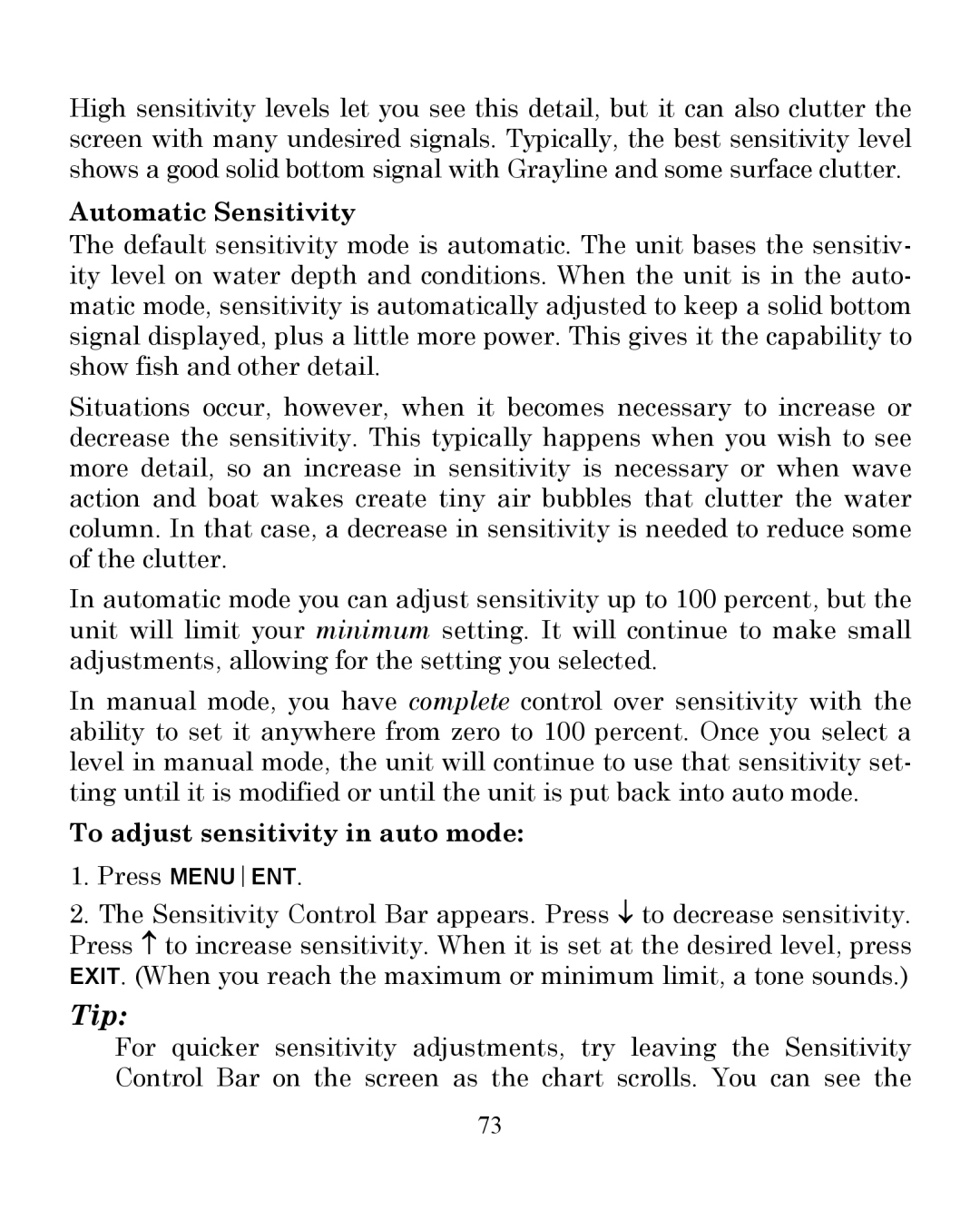High sensitivity levels let you see this detail, but it can also clutter the screen with many undesired signals. Typically, the best sensitivity level shows a good solid bottom signal with Grayline and some surface clutter.
Automatic Sensitivity
The default sensitivity mode is automatic. The unit bases the sensitiv- ity level on water depth and conditions. When the unit is in the auto- matic mode, sensitivity is automatically adjusted to keep a solid bottom signal displayed, plus a little more power. This gives it the capability to show fish and other detail.
Situations occur, however, when it becomes necessary to increase or decrease the sensitivity. This typically happens when you wish to see more detail, so an increase in sensitivity is necessary or when wave action and boat wakes create tiny air bubbles that clutter the water column. In that case, a decrease in sensitivity is needed to reduce some of the clutter.
In automatic mode you can adjust sensitivity up to 100 percent, but the unit will limit your minimum setting. It will continue to make small adjustments, allowing for the setting you selected.
In manual mode, you have complete control over sensitivity with the ability to set it anywhere from zero to 100 percent. Once you select a level in manual mode, the unit will continue to use that sensitivity set- ting until it is modified or until the unit is put back into auto mode.
To adjust sensitivity in auto mode:
1.Press MENUENT.
2.The Sensitivity Control Bar appears. Press ↓ to decrease sensitivity. Press ↑ to increase sensitivity. When it is set at the desired level, press EXIT. (When you reach the maximum or minimum limit, a tone sounds.)
Tip:
For quicker sensitivity adjustments, try leaving the Sensitivity Control Bar on the screen as the chart scrolls. You can see the
73
